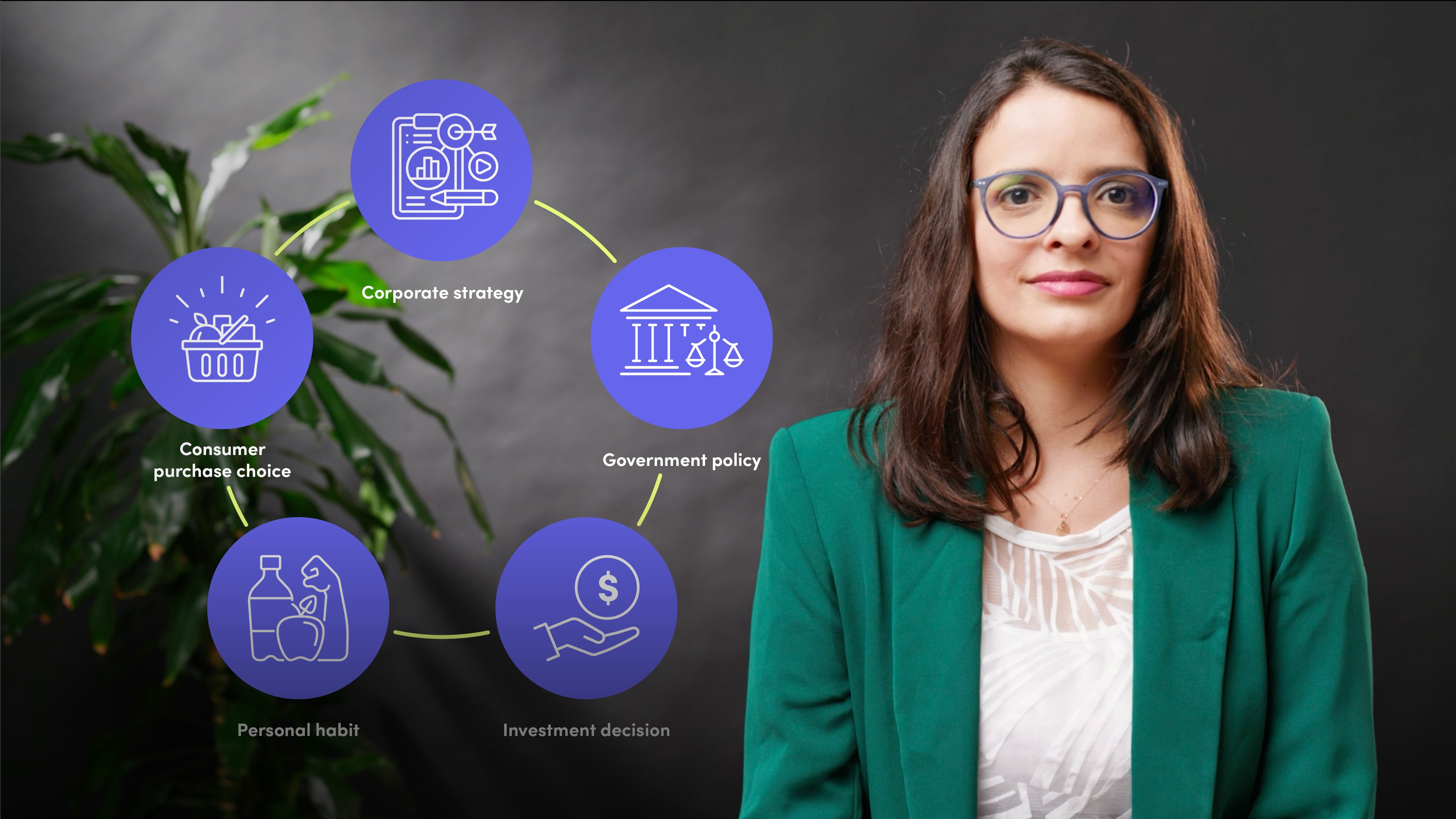
Introduction to Sustainable Production and Consumption

Marcela Porto Costa
12 years: Sustainability & Innovation
In this video, Marcela introduces the challenges of sustainability in both production and consumption and highlights the importance of regulatory standards and technology in enabling sustainability in these areas.
In this video, Marcela introduces the challenges of sustainability in both production and consumption and highlights the importance of regulatory standards and technology in enabling sustainability in these areas.

Introduction to Sustainable Production and Consumption
12 mins 27 secs
Key learning objectives:
Identify the challenges of sustainability in production and consumption
Define the role of regulatory standards in enabling sustainability
Describe the importance of technology in promoting sustainability in production and consumption
Outline the interdependence between regulatory standards and technology in promoting sustainability
Overview:
Sustainability affects everything in many aspects, from corporate strategy to personal choices, and covers a wide range of areas including corporate governance, social responsibility, and innovation. To measure, track, and improve sustainability, a coherent standard is necessary for all stakeholders. Challenges exist in sustainable consumption due to a lack of understandable and trustworthy information and the presence of conflicting and misleading claims. Companies need to improve their sustainability and lower their environmental impact by recording and reporting sustainability metrics, but collecting and analyzing data can be difficult. Regulatory standards and compliance are essential to connect producers and consumers, provide transparency around environmental claims, and establish rules for measuring and communicating sustainability. However, the current ECOlabelling process can be bureaucratic, expensive, and slow for small businesses.
What are the challenges of sustainability in production and consumption?
The challenges of sustainability in production and consumption include:
- Balancing economic growth and environmental protection
- Addressing social inequalities
- Shifting from a linear to a circular model of production and consumption
- Integrating sustainability considerations into decision-making processes
What is the role of regulatory standards in enabling sustainability?
The role of regulatory standards in enabling sustainability is to provide a framework for businesses and individuals to follow in order to minimise their negative impact on the environment and promote sustainability. They can help to ensure that products are produced and consumed in a way that reduces waste, conserves resources, and protects the environment.
What is the importance of technology in promoting sustainability in production and consumption?
The importance of technology in promoting sustainability in production and consumption is that it can provide innovative solutions to the challenges of sustainability. For example, new technologies can help to reduce waste and emissions, improve resource efficiency, and enable a shift towards more sustainable practices. Additionally, technology can also help to raise awareness about sustainability and promote behaviour change, by providing information and tools that enable individuals and organisations to make informed decisions about their production and consumption practices.

Marcela Porto Costa
There are no available Videos from "Marcela Porto Costa"

